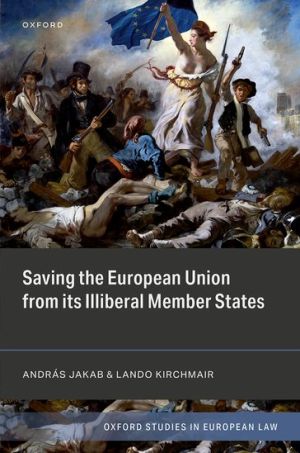
In the last decade, at least two European Union (EU) member states have deteriorated from fragile liberal democracies to illiberal regimes. This deterioration not only includes key elements of the rule of law, but also mechanisms of democratic accountability have eroded. While the cause is an unfortunate combination of factors, post-socialist EU member states are particularly likely to embrace an illiberal cause.
Saving the European Union from its Illiberal Member States aims to show that inherited cultural patterns from socialism - and even earlier - in the form of informal practices and narratives are a largely underestimated source of illiberalism. Initially, the book diagnoses an unfortunate dynamic of 'mutual poisoning': existing vulnerabilities and weaknesses of democracy and the rule of law at the level of EU law are exacerbated by illiberal member states, and vice versa. The crisis of illiberal regimes is shown to be a symptom of the EU's own constitutional malaise. Authors András Jakab and Lando Kirchmair aim to offer antidotes to this mutual affliction, highlighting areas of EU law that have been neglected. Chapters examine whether an epistemological tool, such as the EU Justice Scoreboard, could be adapted to identify illiberal elements. The authors also argue that the protection of fundamental rights needs to be strengthened, through the completion of the European Fundamental Rights Union. Finally, the book states that the Spitzenkandidaten-system needs to be further strengthened and stabilised for the long term - not only to ensure the democratic accountability of the Commission, but also because this has the potential to bring the Commission's hitherto undecided and hesitant stance closer to that of the European Parliament.